5 Ways to Find Amazon Online Arbitrage Leads
Download Amazon Seller Guide
This guide will help you get started, understand the basics of Amazon selling, and explain in simple words how it all works.
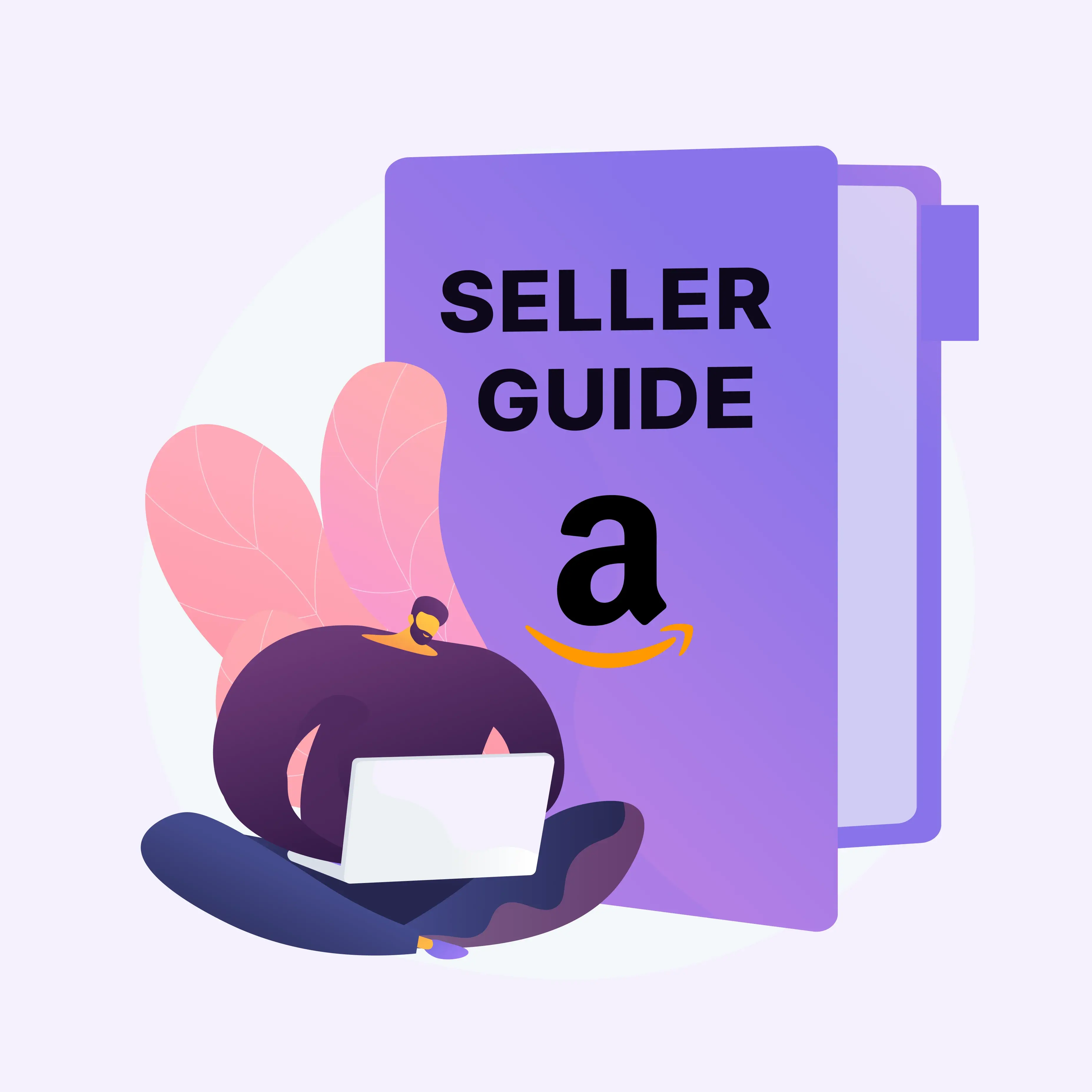
It's no secret that sourcing online arbitrage deals can be time-consuming and challenging, no matter your method. But if you're serious about scaling up and earning real money, think about considering new strategies to find winning Amazon leads.
Anticipating new methods of lead sourcing can help simplify and streamline identifying high-margin deals for your Amazon store.
Some strategies described in this post offer you lead sourcing automation, while others propose buying verified ready-to-sell deals. This post describes 5 methods to find online arbitrage deals and their pros and cons and helps you decide which one fits your business best.
What Are Amazon Online Arbitrage Leads?
.avif)
Amazon online arbitrage leads, also called Amazon online arbitrage deals, refer to potential opportunities where resellers (online arbitrage sellers) can purchase products from other online retailers or marketplaces at lower prices and then resell them on Amazon for a profit.
These leads can be found manually through product research or by using specialized tools, purchased on the online arbitrage deals marketplace, and services that offer leads lists for resellers.
Related: Amazon Online Arbitrage Lead Sourcing Services — Comparison
How to Source Products for Online Arbitrage with Seller Assistant Deals Marketplace
How it works
- Sourcing products
Online arbitrage sellers find discounted products or products that are priced below their Amazon Buy Box price. These items are usually sourced from popular online stores, discount retailers, or clearance sales.
- Reselling on Amazon
Once purchased, these products are listed on Amazon, where the seller can sell them at a higher price, profiting from the price difference.
Related: Best Online Arbitrage Websites for Lead Sourcing
How to Conduct Amazon Product Research
Key criteria of a good online arbitrage lead
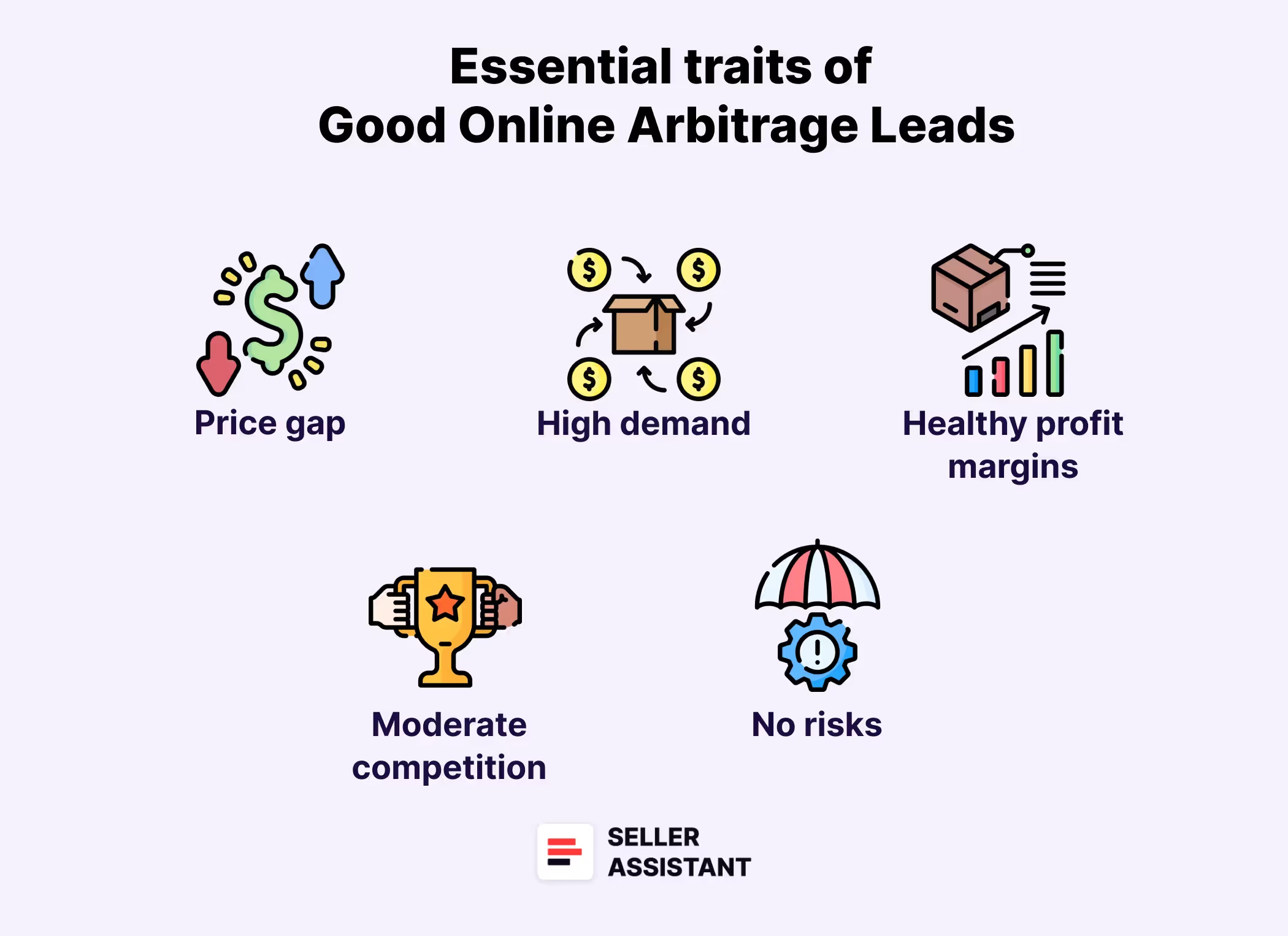
Price gap
There should be a significant difference between the purchase price on the original platform and the resale price on Amazon. The larger the price gap, the higher the potential for profit after fees and expenses.
High demand
The product should have a strong demand, indicated by a good sales rank on Amazon. Use Amazon’s Best Sellers Rank (BSR) to gauge potential; a BSR between 1 and 50,000 signifies solid sales volume.
Healthy profit margins
After factoring in Amazon’s fees, shipping costs, and other overheads, the product must provide a healthy profit margin. Ensure that these costs don’t erode profitability, and aim for a minimum margin that aligns with your business goals. A profit margin must be over 10%.
Moderate competition
Moderate competition is ideal, typically between 3 to 15 sellers offering the product on the listing. Avoid products with more than 15 sellers, as high competition can limit pricing power. Also, steer clear of products sold by Amazon, as they can dominate the listing and it’s very difficult to compete with them.
No risks
Ensure you are eligible to sell the product on your Amazon account. Avoid restricted products or items requiring approval unless you can secure that approval.
Also, check for any intellectual property (IP) complaints or issues that may pose legal risks before you buy the product. Typically, if you don’t have approval from a brand to sell products with IP complaints, Amazon will not allow you to list them.
Related: Is Online Arbitrage Still Profitable in 2025?
How to Ship to Amazon FBA - Step-by-Step Guide
7 Amazon Product Research Tactics You Need
How to Find Online Arbitrage Leads?
If you are not sure where to start looking for online arbitrage leads, look into how many products you sell. The way you source leads depends on how many of them you want to sell.
If you are a beginner and source several products daily, you can do it yourself with the help of product research tools or purchase ready-to-sell leads. But if you sell hundreds of products, you must automate product research and hire deal researchers / virtual assistants to do sourcing.
Below you can find 5 strategies that will help you find online arbitrage deals.
Related: Amazon vs. Alibaba: What’s the Difference?
How to Send Products to Amazon FBA
Strategy 1. Automated Sourcing
Automated sourcing, or supplier-to-Amazon sourcing, is an effective strategy for online arbitrage sellers without existing suppliers, who want to grow their existing OA business to wholesale or sell many products.
By scraping product data from supplier websites and working backward to match these products on Amazon, sellers can uncover potential deals. Below, we explain how reverse sourcing works and the tools that make this process easier.
How it works
This method involves scraping product data from supplier or e-commerce websites. Typically, you’ll receive a file containing hundreds or thousands of products, which can be a goldmine for finding new resale opportunities.
Your key task is to assess the profitability and other relevant factors for each product, then filter out the most profitable leads for resale on Amazon. However, given the volume of products, manually identifying the best deals can be both time-consuming and challenging, which is why automating the process is crucial.
Tools to use
Seller Assistant’s Price List Analyzer is a must-have tool that makes automated supplier price list scan more efficient. This is one of the best scanner tools designed for Amazon sellers.
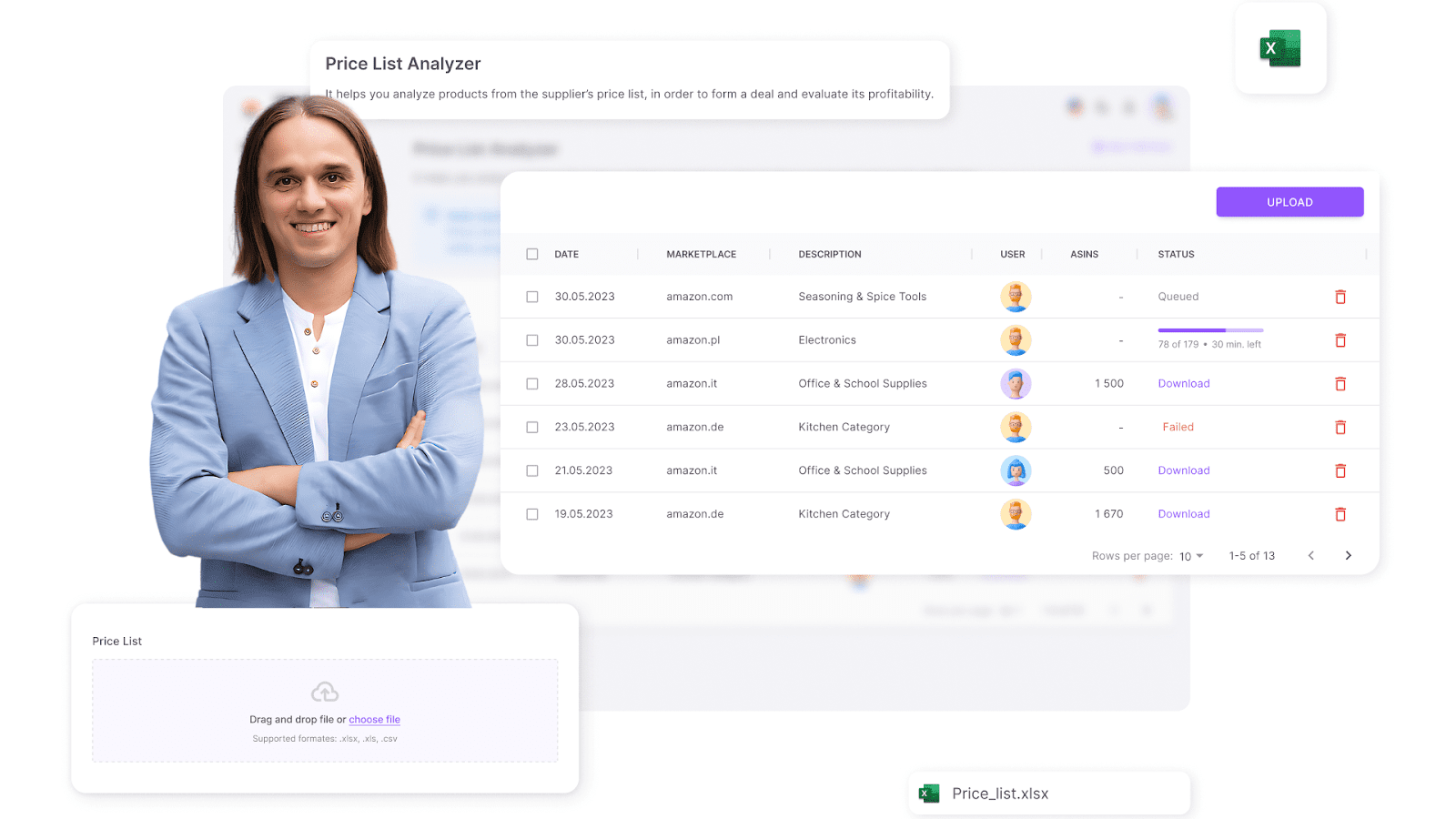
It instantly matches your supplier’s products to Amazon listings, fills your spreadsheet with vital product data, and lets you filter by eligibility, profitability, sales, and risks – so you can zero in on top-selling, high-ROI products fast. With automation doing the heavy lifting, you eliminate manual errors and speed up sourcing, making it easier to scale your business.
Price List Analyzer helps you:
- Automatically match supplier products to their Amazon ASINs.
- Check if a product is sellable on your account and review restrictions.
- Add essential sourcing metrics like profitability and risk to your spreadsheets.
- Bulk-analyze supplier lists to quickly spot high-ROI deals.
- Get detailed performance data: potential profit, sales volume, and velocity.
- Dive into profitability metrics like profit, ROI, margin, break-even point, and estimated sales to uncover high-margin deals.
- Evaluate competition by checking FBA and FBM offers.
- Track Buy Box averages and pricing trends across 30, 90, and 180 days.
- Uncover sourcing risks: product restrictions, IP complaints, listings with Amazon in the Buy Box, warnings and risks (hazmat, fragile, meltable, etc.).
- Filter by profitability, restrictions and risks, sales performance, Buy Box price, and competition levels, to refine your sourcing strategy.

Steps to automated sourcing
- Step 1. Log in to your Seller Assistant account and open Price List Analyzer.
- Step 2. Click “Upload,” choose your marketplace, and drag in your Excel file with the wholesale price list.
- Step 3. Map key fields like price, ASIN, and supplier cost to prep the file for analysis.
- Step 4. Click “Analyze Price List” to kick off processing.
- Step 5. Once complete, explore the detailed report and apply filters to surface the most profitable, low-risk deals.
- Step 6. Download the refined list for final review and confident purchase decisions.
Note. Seller Assistant is a comprehensive product-sourcing software that helps Amazon sellers quickly find high-profit deals. It combines three extensions: Seller Assistant Browser Extension, and IP-Alert Chrome Extension by Seller Assistant, and VPN by Seller Assistant, Amazon seller tools: Price List Analyzer, Brand Analyzer, Seller Spy, Bulk Restrictions Checker, and API integrations, and features: Side Panel View, FBM&FBA Profit Calculator, Quick View, ASIN Grabber, UPC/EAN to ASIN converter, Stock Checker, IP Alert, and Restrictions Checker.
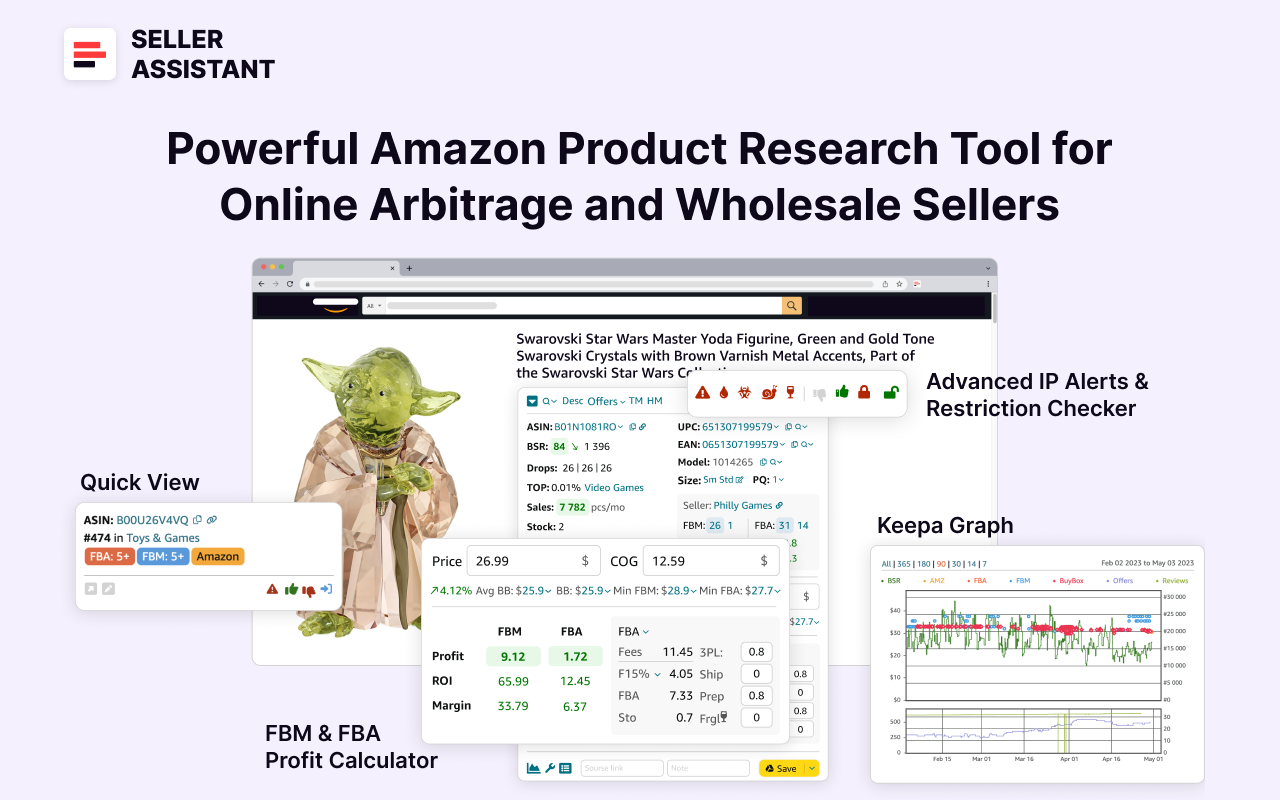
Seller Assistant shows all essential product data on Amazon search, product, and inventory pages, and on any website to help you find high-margin deals. By using this FBA and FBM product sourcing software, you can easily identify products that have the potential to be sold well on Amazon.
Pros of automated sourcing
Automated lead identification
Automated sourcing allows sellers to quickly analyze large lists of products from suppliers, which saves time compared to manual research. This enables sellers to uncover profitable products more quickly and scale their business faster.
Data-driven decision making
With tools like the Price List Analyzer, sellers can rely on calculated profitability metrics such as ROI and BSR to make informed decisions. This reduces the guesswork and minimizes the risk of choosing unprofitable products.
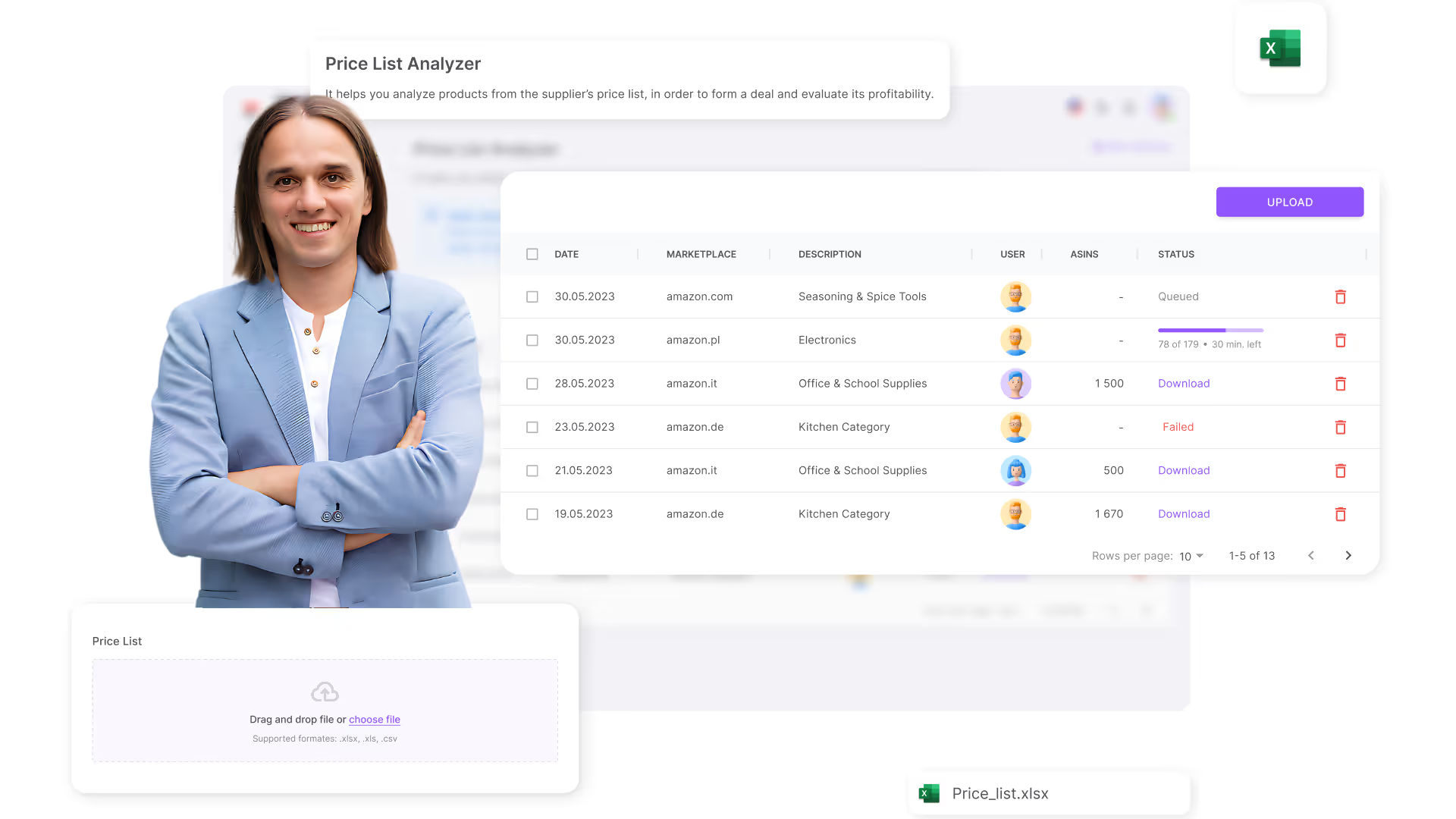
Cons of automated sourcing
Initial setup and learning curve
Setting up automated sourcing tools requires some initial investment of time and learning. For sellers unfamiliar with the software, there may be a learning curve that slows down the process at first.
Reliance on supplier data
The accuracy of automated sourcing is dependent on the quality and availability of data from suppliers. If the supplier data is outdated or inaccurate, this can lead to incorrect profitability assessments and missed opportunities.
.avif)
Strategy 2. Self-Sourcing
Self-sourcing is a strategy where sellers independently identify in-demand products on Amazon and then seek out suppliers who can offer these items at a lower price. This method is especially valuable for online arbitrage sellers looking to leverage price discrepancies by purchasing low and selling high.
How it works
Self-sourcing begins with finding products that are popular on Amazon. Sellers typically explore Amazon Best Sellers, Amazon Movers & Shakers, Amazon’s Hot New Releases, and Amazon "Most Wished For" sections to discover these products. Then, use Seller Assistant’s Quick View to narrow down search results and pick potentially promising ASINs.
Once you identify a potential product, the next step is to locate a supplier that offers the item at a competitive price. You can use Seller Assistant’s Lookup Links or choose a supplier websites from Seller Assistant’s List of 500+ US suppliers. After finding a supplier, you can use Seller Assistant’s Side Panel View on the supplier's website to gather essential metrics for analysis.
Tools to use
Seller Assistant’s Side Panel View is a critical tool for self-sourcing research. After identifying a popular product on Amazon, you can use this tool to simplify the supplier search and evaluate profitability by comparing products directly on the supplier’s website.
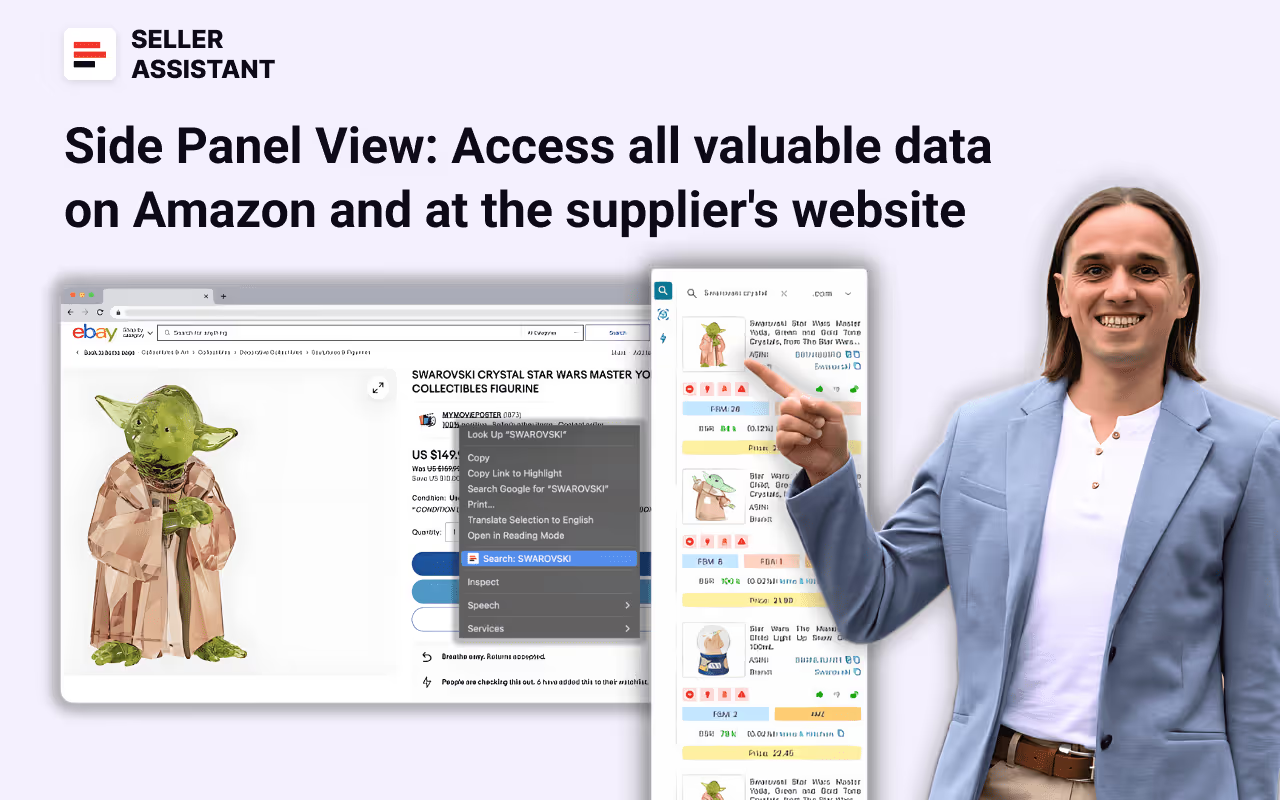
Side Panel View lets you:
- Research potential deals instantly without leaving supplier websites
- Match any supplier product to its Amazon ASIN for enhanced on-page sourcing
- Compare products side by side to assess sales potential, velocity, profitability, and risks
- Analyze competition from FBA, FBM, and Amazon sellers, including their offers
- Gauge your chances of winning the Buy Box
- View product alerts, flags, and restrictions directly on the supplier's page
- Calculate product profitability on the supplier website, side-by-side
- Estimate competition levels
- Identify best-selling variations without leaving a supplier page.
Self-Sourcing step-by-step
- Step 1. Choose a product on Amazon
On the Amazon search pages, use Seller Assistant’s Quick View to narrow down search results and identify potentially promising ASINs by estimating potential product sales (BSR), competition (FBA and FBM seller count, Amazon in the Buy Box), IP alerts, and restrictions.
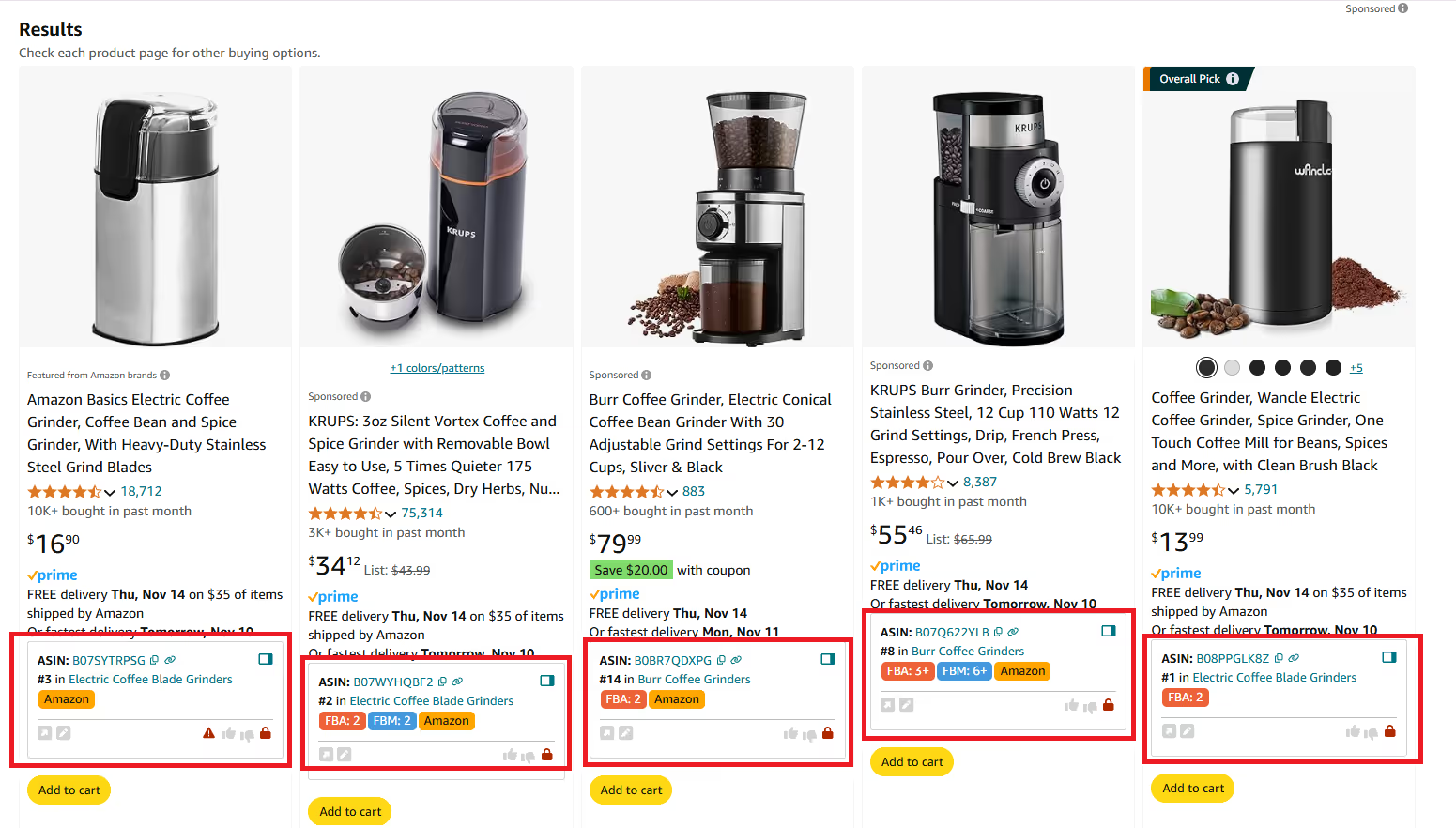
- Step 2. Product supplier search
Open the chosen product listing on Amazon and with Seller Assistant’s Lookup Links find suppliers. Choose your preferred search engine, and the tool will offer relevant supplier options.
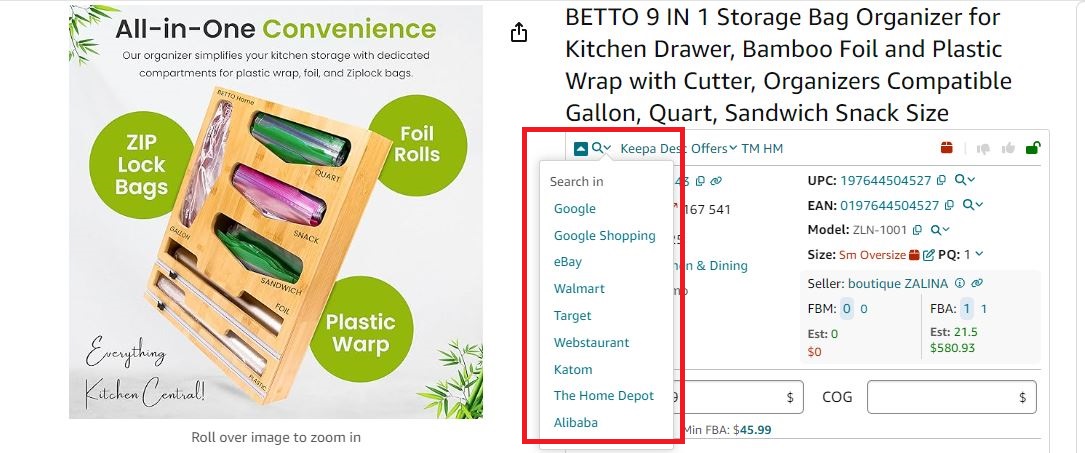
- Step 3. Side-by-side product comparison
After finding a suitable supplier, use Seller Assistant’s Side Panel View to compare the Amazon listing and the supplier’s offer. This allows you to evaluate key metrics side-by-side, helping you decide whether the product is worth sourcing based on the extended research.
Activate the feature by clicking the Extensions icon to the right of your address bar in Chrome browser and choose Seller Assistant Extension.
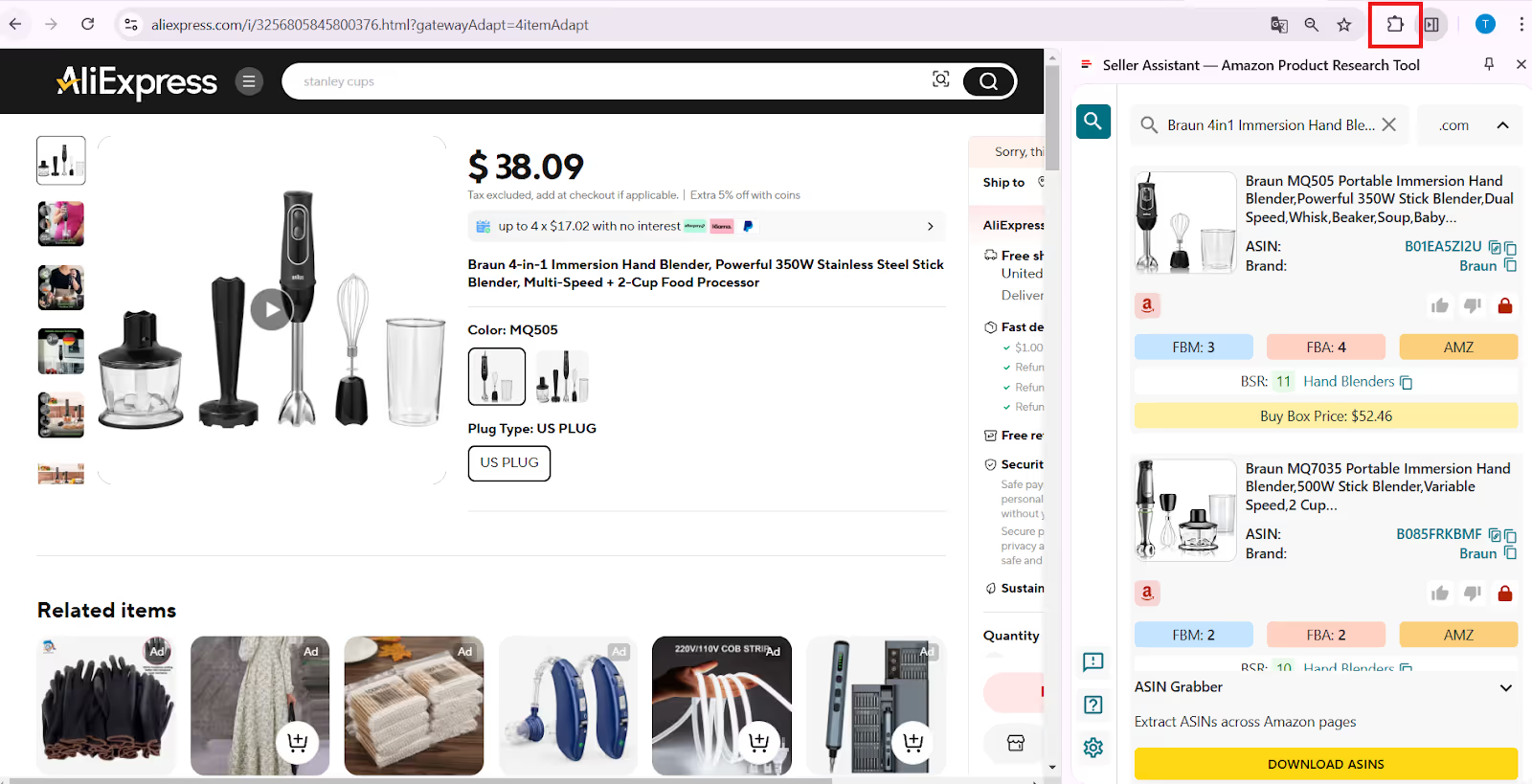
- Side Panel View will show you all Amazon product offers matching your supplier product (based on a search term or page title).
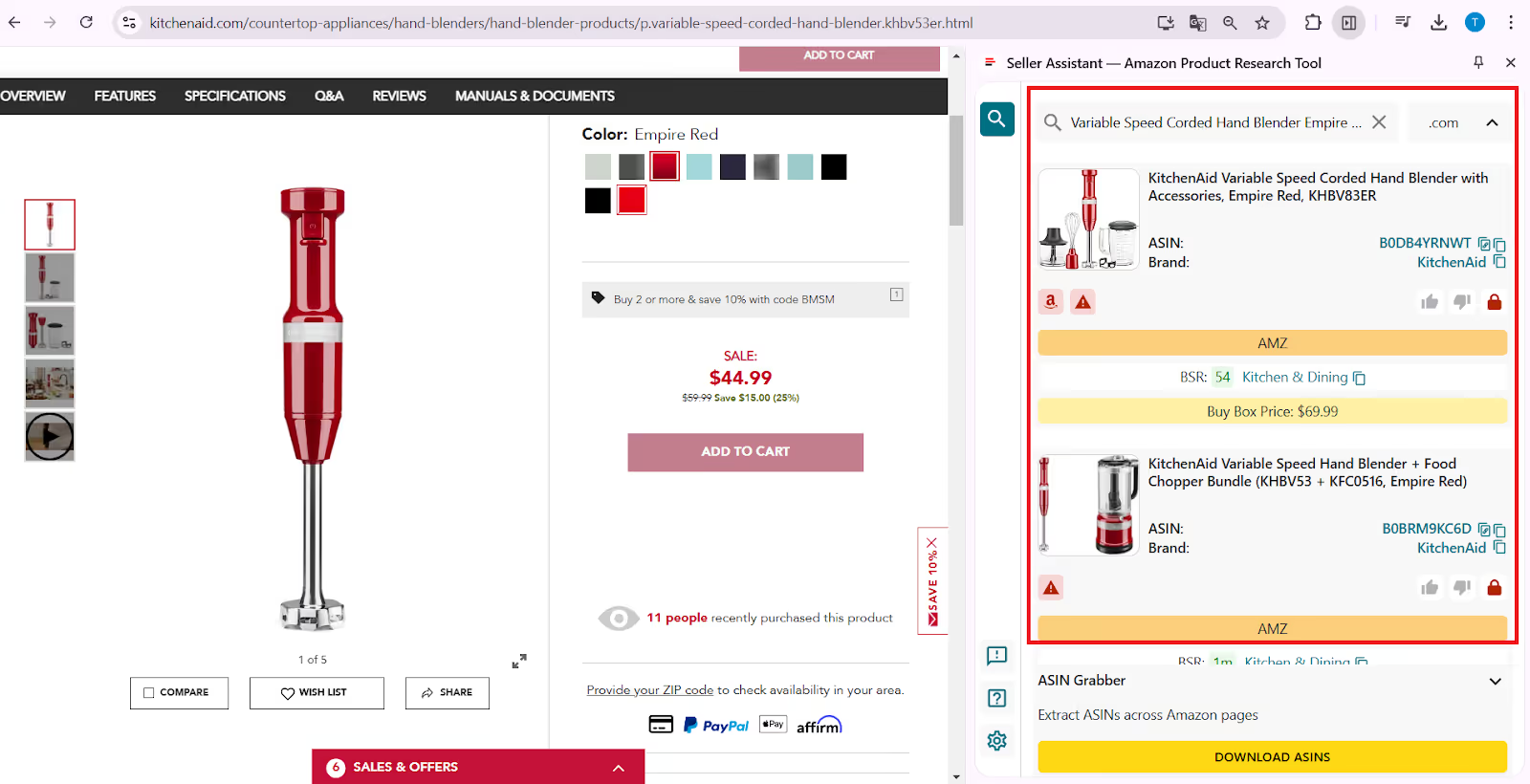
- Scroll down through all results, and click the Product Details icon or product image of the ASIN you want to research.
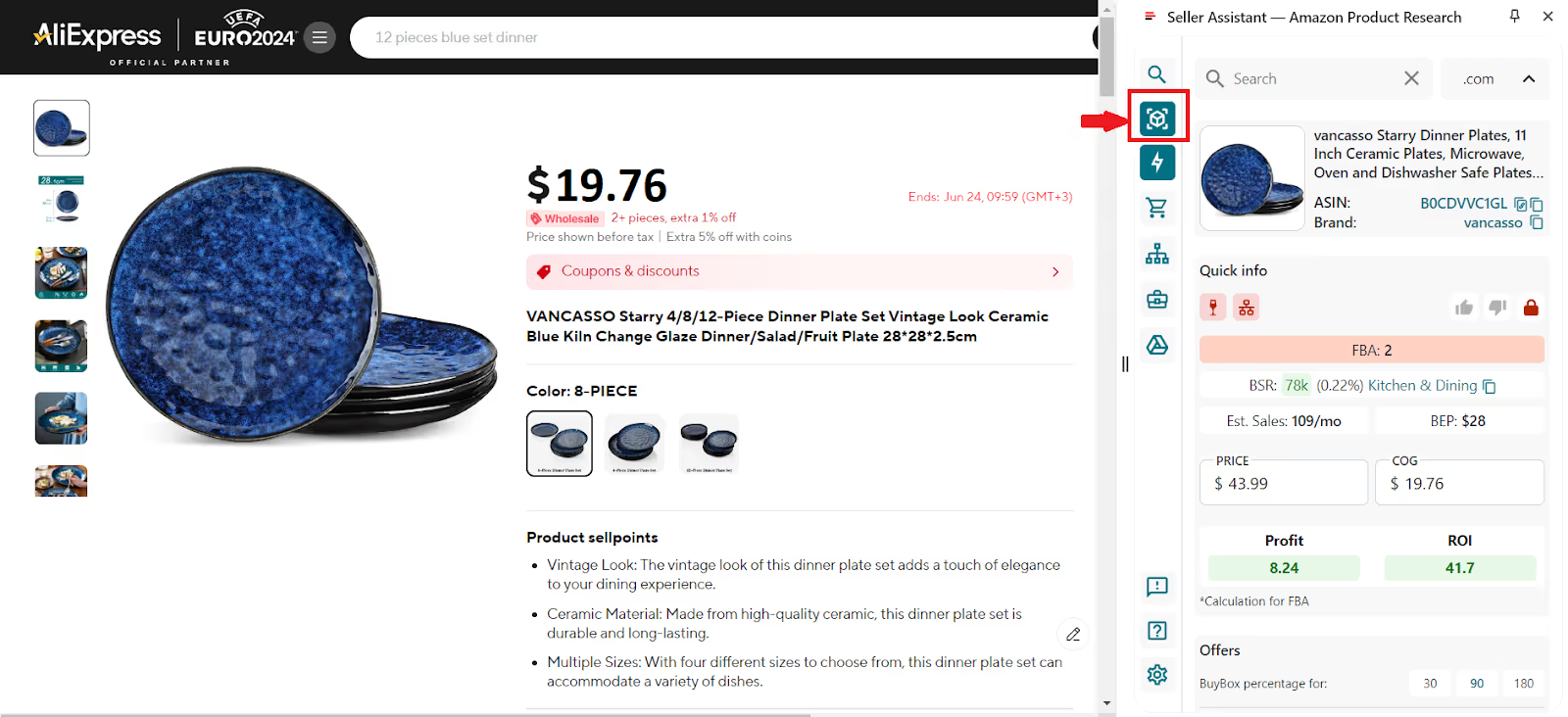
- You will see all essential product data without leaving a supplier website. Make sure the product meets your custom product research criteria, If it does, you find a lead. Calculate product profitability to make sure you get a margin and ROI you expect.
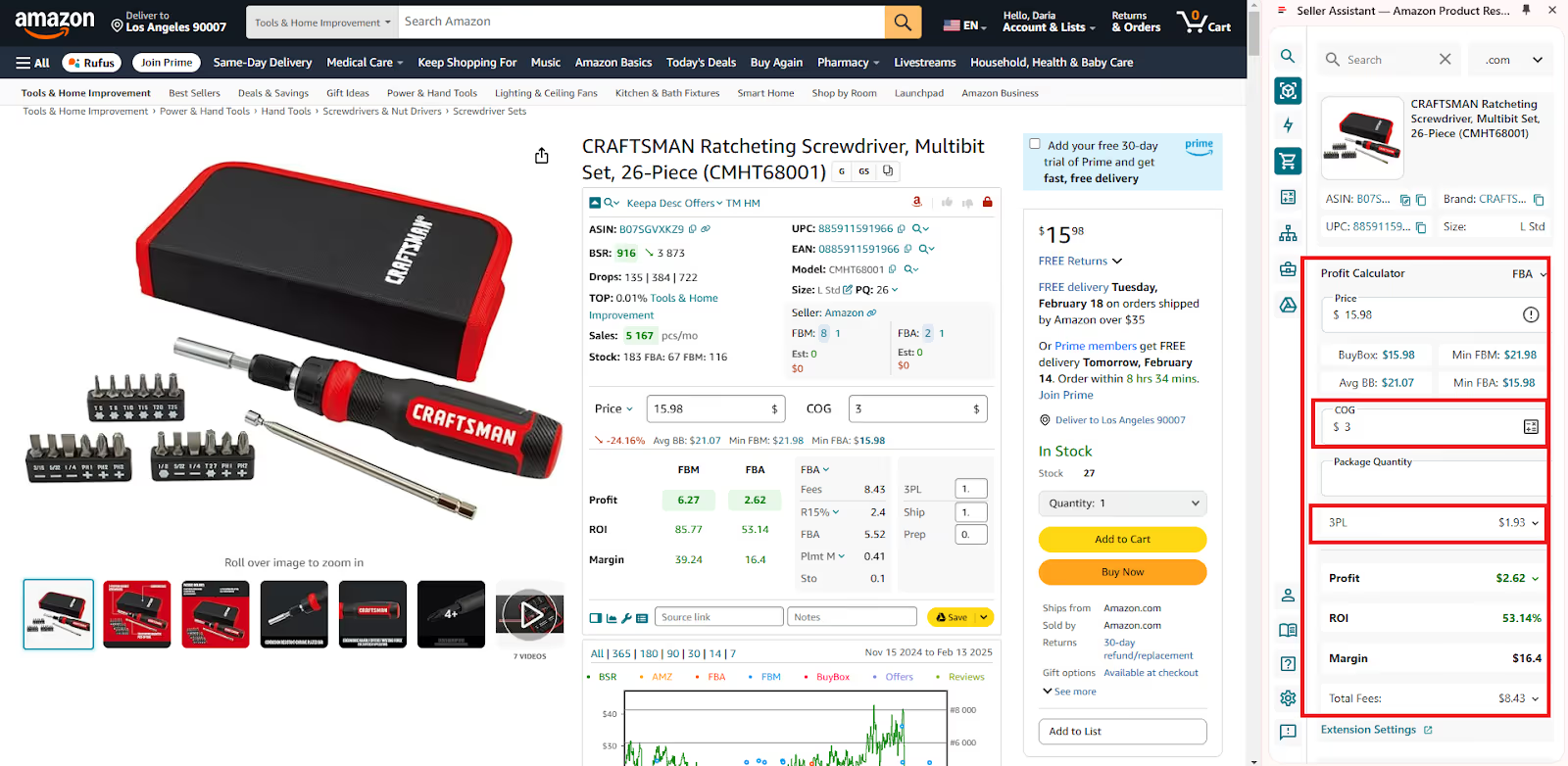
Pros of self-sourcing
No sourcing costs
You don’t have to pay for sourcing tools or services, which reduces overhead and increases profitability. This makes it easier to focus your budget on purchasing inventory and scaling your business.
Full control over the sourcing
With full control over the sourcing process, you can personally select the products that align with your business strategy and profit goals. This autonomy allows you to make informed decisions and quickly adapt to market changes without relying on third-party sourcing services.
Cons of self-sourcing
Time and effort intensive
Product research requires significant time and effort to identify profitable opportunities. It can be a lengthy process, especially when sorting through numerous products.
Experience is required
Successfully finding profitable products demands a solid understanding of market trends and sourcing strategies. Without experience, it can be challenging to consistently identify high-return products.
Related: Online Arbitrage vs Wholesale on Amazon. What is the difference?
Online Arbitrage vs Retail Arbitrage on Amazon
Strategy 3. Competitor Research
Competitor research is a great strategy for online arbitrage sellers who want to automate researching competitors for new product ideas and brand insights. By analyzing your competitors’ product offerings and identifying market gaps, you can expand your inventory and uncover new opportunities to grow your business.
This approach can be also beneficial for all sellers who want to streamline competitor research and seek a competitive advantage.
How it works
Competitor research involves systematically tracking your rivals to find market opportunities. By reviewing their product listings, you can identify high-demand items with limited competition or discover popular brands they carry that you haven’t yet included in your offerings. This strategy helps you optimize your product lineup and meet customer demands more effectively, keeping you competitive.
Tools to use
Seller Assistant’s Seller Spy simplifies the process of competitor research by automatically tracking the brands and products your competitors add or remove. It also provides insights into their pricing strategies, enabling you to make informed decisions for your own inventory.
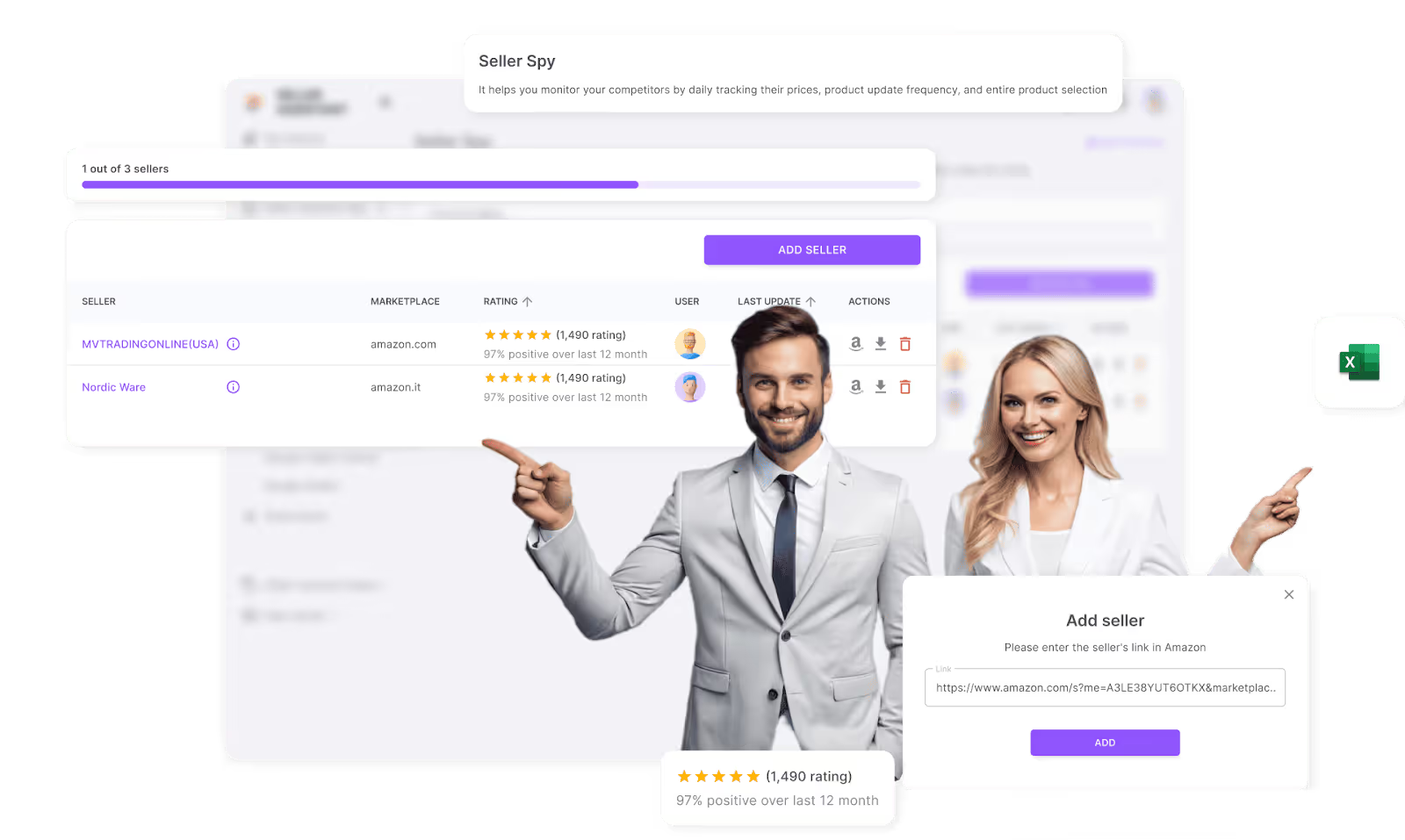
By using Seller Spy, you can quickly gather data to identify new product opportunities and adjust pricing. Simply enter your competitor’s information into the tool, and download a detailed report that includes key metrics, such as product additions and removals, pricing, and direct links.
Seller Spy lets you:
- Track products added or removed from Amazon storefronts – no manual checks needed
- See the exact date a product was added or removed to monitor trends in real time
- Discover product gaps by identifying items competitors sell that you don’t
- View competitor pricing to adjust your own margins and stay competitive
- Download detailed Excel reports with ASINs, prices, images, and product links
- Access seller and storefront data like name, link, rating, reviews, and location
- Collaborate as a team – see which team member added a competitor for tracking (for Teams users)
- Check the last update timestamp to know how fresh the data is.
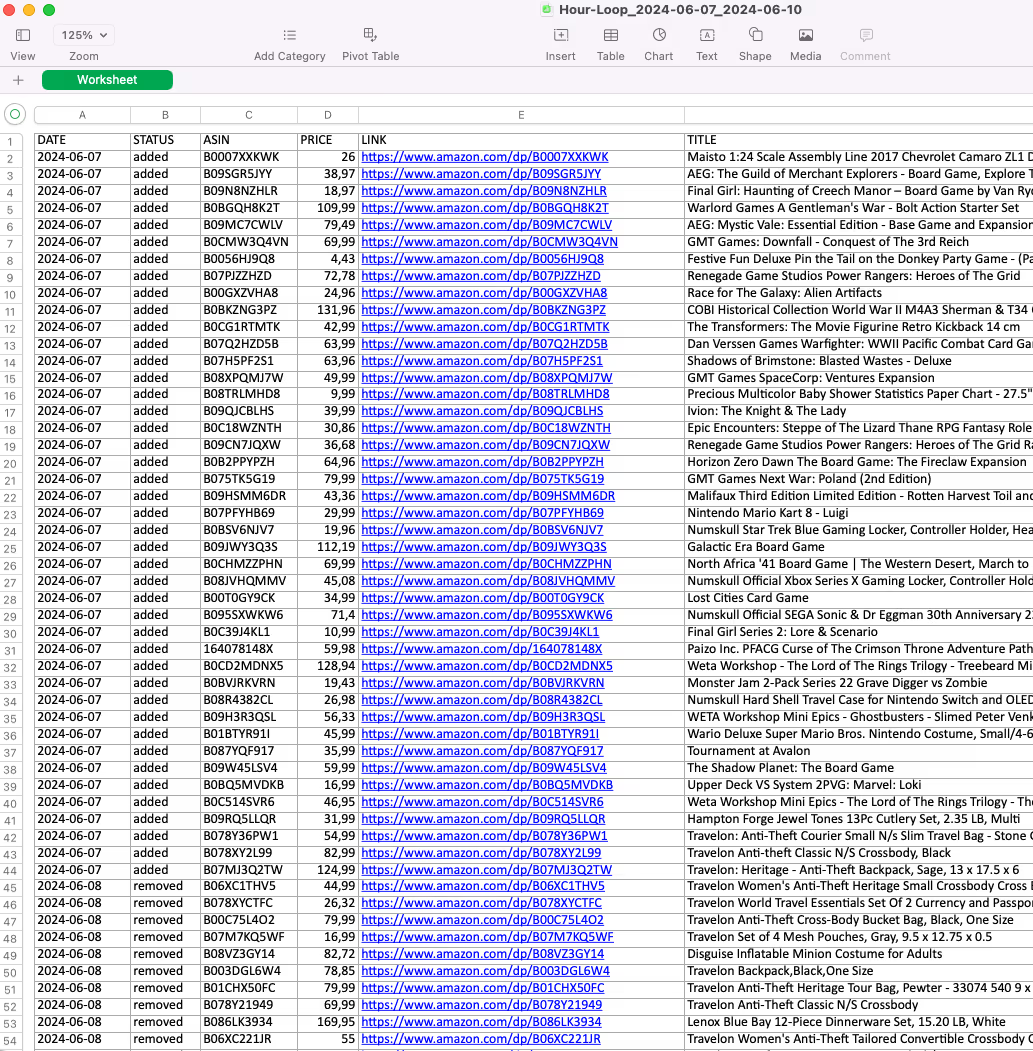
Pros of competitor research with Seller Spy
Automated tracking
Seller Spy automates the process of tracking competitors, saving you time and effort compared to manual research. It provides real-time insights on product additions, removals, and pricing, allowing for faster decision-making.
Comprehensive data
With Seller Spy, you gain access to detailed competitor data, including product images, ASINs, and direct links. This enables you to make well-informed decisions on product sourcing and pricing adjustments based on your competitors' activities.
Cons of competitor research with Seller Spy
Potential overreliance on competitors
While Seller Spy provides valuable data, focusing too heavily on competitors' actions may limit your ability to innovate and pursue original strategies. You might end up following trends instead of setting them, which could reduce your uniqueness in the market.
Learning curve
Although Seller Spy simplifies research, there may be a learning curve when using the tool for the first time. For those unfamiliar with such tools, it may take some time to fully utilize all its features effectively.
Strategy 5. Leads Lists
Amazon online arbitrage lead lists services are subscription-based services or platforms that provide curated lists of profitable products for online arbitrage sellers. These services help sellers identify potential products that can be purchased from other retailers at a low price and resold on Amazon for a higher price, allowing sellers to take advantage of price differences.
These services compile and regularly update lists of products that meet certain profitability criteria, such as price gaps, BSR, and expected ROI.
How it works
Depending on your pricing plan, you must prepay a subscription fee to unlock access to the list. The fee, in many cases, is quite expensive.
Typically, you choose the pricing plan and receive updated leads lists to your email or download them. When you buy lists of leads, you can’t select them, and the same deal may pop up in several lists, which means you pay for one deal twice. The lists are updated during business days with several new deals. Lead lists include important data like the product’s buy cost, selling price on Amazon, Amazon fees, estimated profit, and ROI, allowing sellers to quickly evaluate potential opportunities.
Some lead list services limit the number of subscribers to maintain exclusivity and reduce competition among sellers who use the same leads. However, many lead-sourcing companies share each list with dozens of buyers to get maximum profits. That often results in the most profitable leads being quickly sold out. Also, that creates additional competition between the sellers, thus lowering profit margins.
Tools to use
There are many different lead-sourcing platforms offering lead lists to Amazon OA sellers. If you are looking for a cost-efficient offer from a deal-sourcing company, OABeans can deliver you a list of profitable online arbitrage deals.
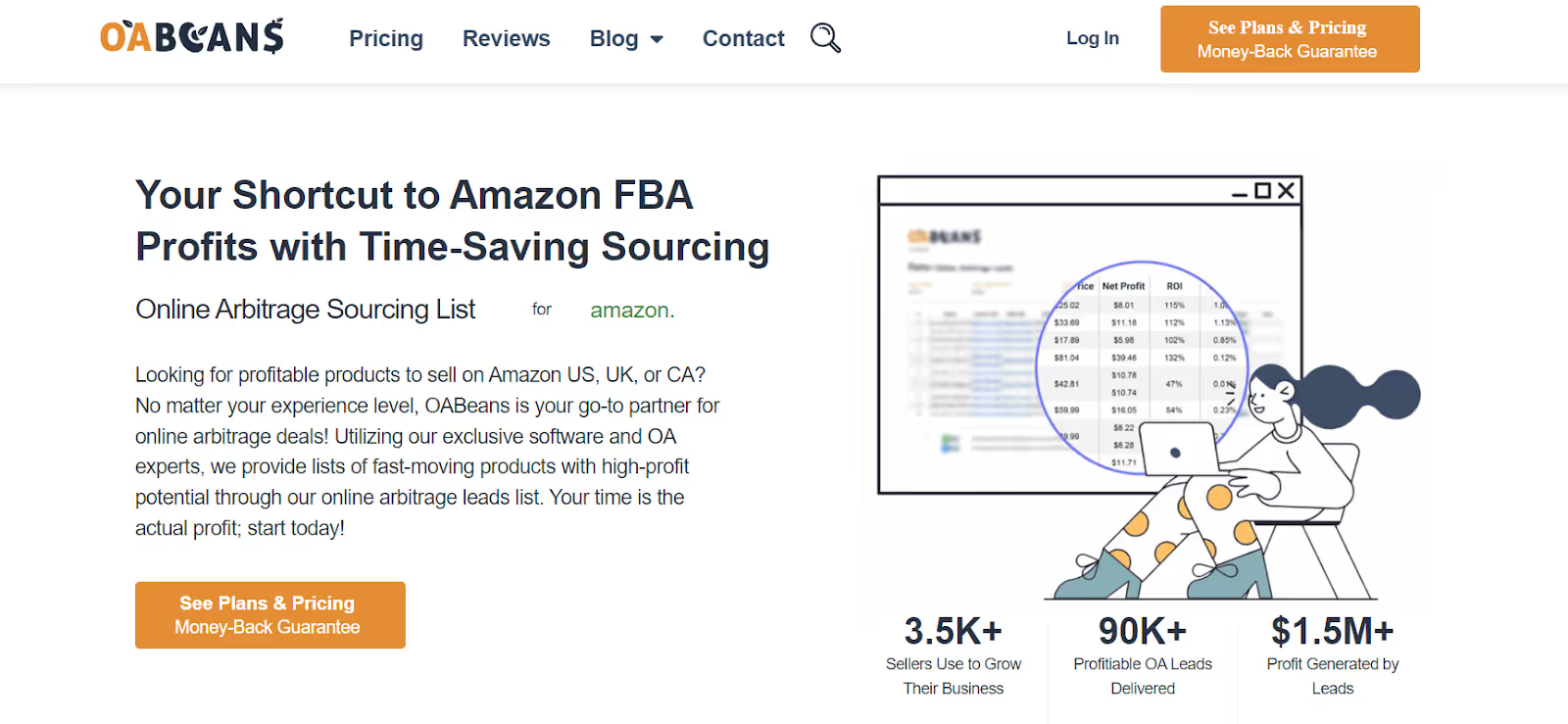
With OABeans, you can get leads lists in your account daily, buy items at a lower price from sources like Walmart, and sell them at a higher price on Amazon.
Pros of lead sourcing services
Time and effort savings
Lead sourcing services save you time by providing pre-researched, ready-to-sell deals. This allows you to focus on growing your business rather than spending hours on product sourcing.
Pre-verified deals
The deals offered are (typically) verified for profitability and eligibility, reducing the risk of buying unsuitable products. This helps streamline decision-making and minimizes the need for additional research, if the verification is done correctly.
Cons of lead sourcing services
Prepayment required
Accessing lead lists often requires prepayment, and you usually cannot select individual deals. This forces you to buy entire lists without the ability to tailor them to your specific needs.
Limited exclusivity and quality concerns
The same lead list can be sold to multiple buyers, increasing competition for the same products. Additionally, some users may find inconsistencies in deal verification, and most platforms offer no refunds, only replacements for unsuitable leads.
FAQ
Is online arbitrage legal?
Yes, online arbitrage is legal as long as you're not violating any laws or Amazon’s policies. It involves buying products from one platform at a lower price and reselling them on another, which is a common practice in many industries.
How profitable is online arbitrage?
Online arbitrage can be highly profitable if done correctly, with potential margins ranging from 10% to 50% or more. Profitability depends on factors such as product selection, sourcing costs, and effective pricing strategies.
Is Amazon online arbitrage risky?
Yes, Amazon online arbitrage carries risks such as price fluctuations, competition, and potential issues with Amazon's seller policies like intellectual property complaints and eligibility to sell specific products on your account. Additionally, products may be restricted, which can impact your ability to sell them.
How much money do you need to start arbitrage?
You can start online arbitrage with as little as $500 to $1,000, though higher starting capital allows for greater flexibility and inventory options. The initial investment depends on factors like sourcing costs, tools, and shipping expenses.
Is retail arbitrage allowed on Amazon?
Yes, retail arbitrage is allowed on Amazon as long as the products comply with Amazon’s policies and are not restricted or counterfeit. However, sellers should ensure they have the necessary approvals and are aware of any restrictions for specific brands or categories.
Final Thoughts
Finding profitable OA leads has always been challenging. However, this process can be simplified or even automated, depending on the scale of your business. You can reach your sales targets and successfully scale your Amazon business with the right approach and tools.
Seller Assistant is an all-in-one product sourcing software offering all the features vital for product sourcing. It combines three extensions: Seller Assistant Extension, IP Alert, and VPN by Seller Assistant, tools: Price List Analyzer, Seller Spy, Bulk Restrictions Checker, and API integrations, and features: Side Panel View, FBM&FBA Profit Calculator, Quick View, ASIN Grabber, UPC/EAN to ASIN converter, Stock Checker, and other features that help quickly find high-profit deals. Seller Assistant also offers integration with Zapier allowing to create custom product sourcing workflows.
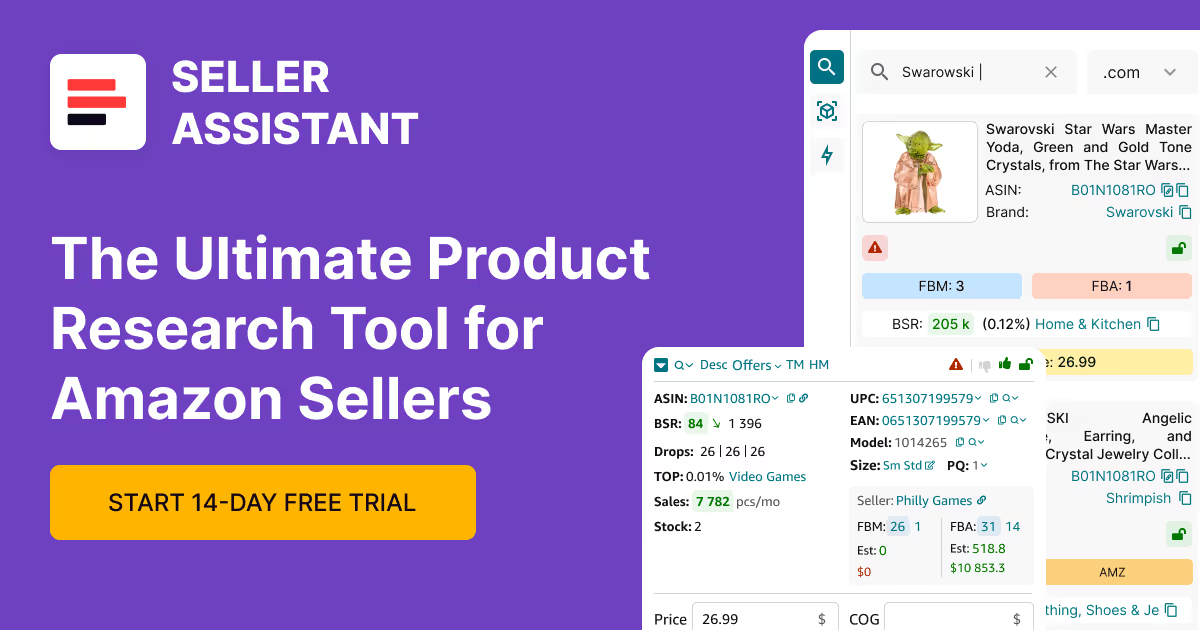
.svg)













